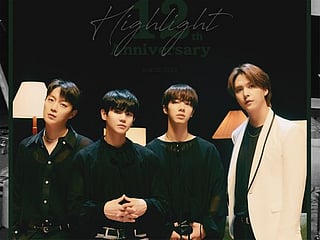Spending hours on TikTok not without risk
She was spending her time writing stories and reading the endless novels online

TikTok as an educational tool. Somehow it’s working for my teenager.
“Mom, how do you spell ‘suspicious’?” my 13-year-old daughter asked me recently, not even looking up from her phone. Other than for meals, she had hardly made her presence known, so I figured it was the perfect opportunity to give her a hard time, before spelling it out.
“How about I use it in a sentence? ‘It’s pretty suspicious that you’ve been on TikTok an awful lot lately.’ “ I was waiting for the predictable eyeroll, and to hear about how her older sister, an anime cosplayer with a following of almost 100,000, was always on it, too. Instead I got a reply that I was not expecting.
Apparently, after becoming engulfed in the “Harry Potter” books and movies, she had created a fan fiction account that in just a few short weeks had grown to 50,000 followers. Each video was a fictional text exchange between characters, telling a continuing story of a teen. She had more than a million likes, and about 30,000 views per video. And the commenters begged to be reminded when the next part of her series was posted.
As her proud parent, and as someone who works in social media, I couldn’t help but be impressed. But I was more excited that she was spending her time writing stories and reading the endless number of Potter fan fiction novels online, which was incredible considering she had always been a good but extremely reluctant reader.
All of this made me question my trepidation about the app, so I had to ask myself, was TikTok actually supporting her educationally? And if so, did the benefits outweigh the potential risks?
When I spoke to Meg Burke, an instructional literacy coach and teacher, about my daughter’s account, she was excited. She broke down what my daughter was learning based on the Common Core Reading Standards. “Teaching kids what the text says and what the text means isn’t the hard part,” she said.
“Helping them grasp why the text matters, which usually occurs during fourth through eighth grade, is much more challenging. If kids, like your daughter, do master this, the result is that they see themselves in the text, translate that into their writing, and finally see themselves as writers.” Burke added, “When this occurs, reading naturally spikes up with it.”
Who wouldn’t want their kids’ hours spent on screens to translate into actual quantifiable learning? Here kid, let me charge your phone for you!
But spending endless hours on TikTok is not without risk, which is why I wanted to check in with Lori Getz, an internet safety specialist. Regardless of the potential learning benefits, she had a few important considerations for parents with kids on TikTok, like mine.
Emotional consequences
According to Getz, parents need to think about the emotional consequences of deriving self-worth from likes, views and subscribers. And they need to be aware of the content that kids are being exposed to through the TikTok algorithms, which flood feeds with a specific type of video based on what you’ve hovered over or watched. “People and groups have effectively used TikTok to normalise everything from conspiracy theories to sex acts,” Getz noted.
But Getz is most concerned about personal safety. “Are your kids developing a relationship with someone and not telling you about it?” Getz asked. Getz emphasised that parents should stop perpetuating the idea that every person on the internet is lying, and focus on the issue that kids think people who compliment them or give them feedback (such as comments or messages) are good, or friend material. “This is the most dangerous part of the internet,” she told me.
However, Burke was hesitant to tell me to close my daughter’s TikTok account. “She’s reading more, and writing on her own — using structure and format — not taking selfies and doing silly dances to try to get attention.” After seeing so many kids with untapped potential get discouraged by poor grades based on standards being taught with methods that aren’t reaching kids where they are, Burke thinks that the benefits could outweigh the risks.
Being a parent means constantly weighing those factors, not just with a TikTok account, but in every aspect of their lives.
For now, the worry I have over her befriending a stranger, which is a conversation we’ve had for many years now, and will continue to have, is mitigated by the joy I see in my daughter from her sudden desire to read, and create the fan fiction stories she shares weekly with her followers.
I can’t say whether that’s the right decision, but at least I know that it’s an informed one, which is all we parents can ever say about any of our choices.
Kristen Chase is an author, a mom of four and co-founder of Cool Mom Picks.
Washington Post







